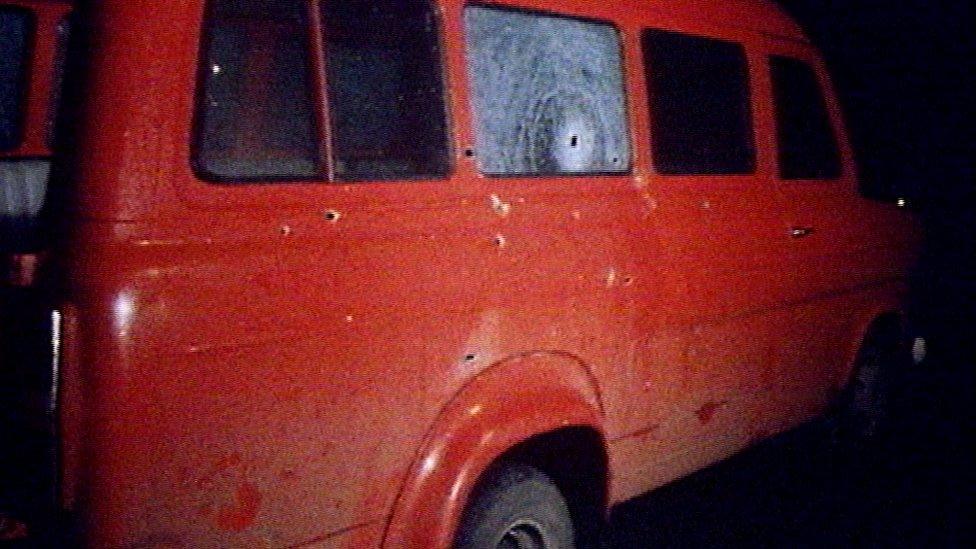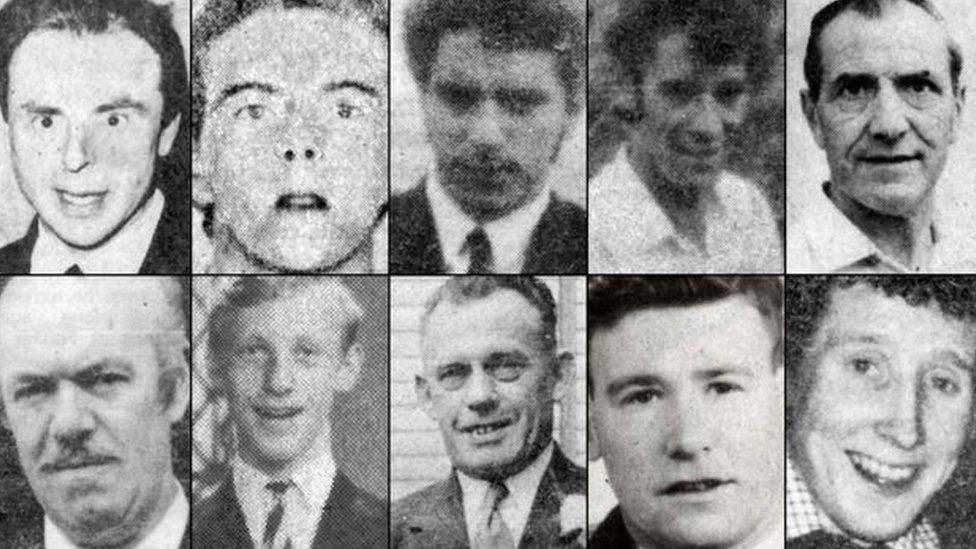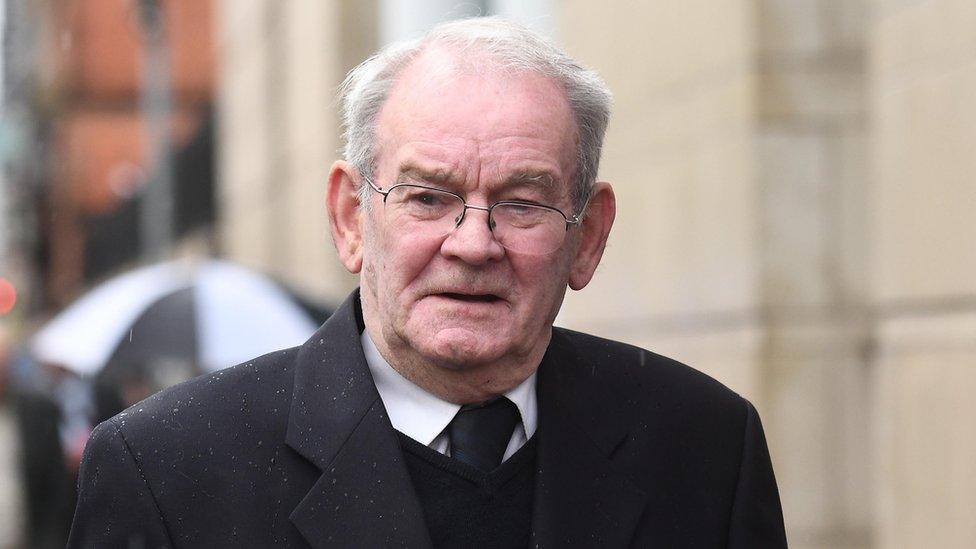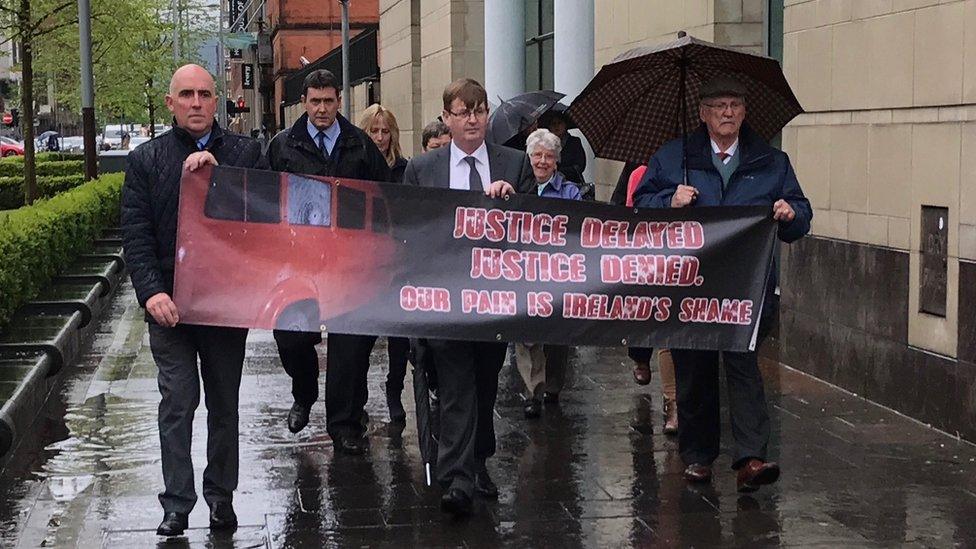Kingsmills massacre inquest resumes in Belfast
- Published

The 10 men were shot dead after IRA gunmen stopped their mini-bus
Thirteen suspects are listed in security documents linked to the 1976 Kingsmills Massacre, an inquest has heard.
The inquest into the IRA murder of 10 Protestant workmen, which resumed at Belfast Coroners' Court after almost a year, heard from a counter-intelligence officer, known only as J2.
He said security documents showed suspects included four IRA members.
Two of the four were understood to be on the run having escaped from custody.
It stated that the two men had crossed into Monaghan after the murders, later re-crossing the border into the Crossmaglen and Cullyhanna areas of south Armagh.
'Known killer'
The document said the two suspects were "well-armed".
Giving evidence from behind a screen, J2 examined documents including referring to one of the suspects, a wanted man, as "a known killer".
Another suspect was described as being from Dundalk, and a "big man in the IRA".

The victims ranged in age from 19 to 58
It emerged that within days of the murders, the police were able to access descriptions and photographs of several of the suspects.
At the time it was claimed by a group calling itself the South Armagh Republican Action Force, thought to be a splinter group of the Provisional IRA (PIRA).
The Historical Enquiries Team of the PSNI later stated that the attack was carried out by PIRA members.
Some intelligence discussed in court suggested the South Armagh Republican Action Force was used as a cover-name by an IRA unit when there was a public outcry against their activities.
Officer J2 agreed that the attack had required a certain amount of planning, but stated that there was no evidence of prior intelligence suggesting it was going to be carried out.
Palm print
The witness is helping the coroner with sensitive police intelligence material and is expected to testify for up to three days.
The 10 workmen were shot dead on 5 January 1976 after the gunmen stopped their van and asked which among them was a Catholic, and instructed that man to leave the scene.
No-one has ever been held to account for the murders, but in recent years the Historical Enquiries Team identified the killers as the Provisional IRA.
The inquest was halted in June 2016 after just a month, and after hearing evidence and statements from 53 witnesses.
The adjournment came after the PSNI arrested a man in connection with the murders.
That followed the discovery that a left palm print was recovered from a window of a vehicle used by the attackers.
It is understood the print matched the man arrested in the Newry area.
Earlier this year the Public Prosecution Service decided not to prosecute the man, saying the test for prosecution had not been met.

Alan Black, who survived the massacre of his workmates, arrives at the inquest on Monday
Before the inquest resumed on Monday there was a brief protest outside the court against the continuing delay in the case.
As the inquest resumed, a solicitor for some of the victims' families called a recent letter from An Garda Síochána "insulting" and said it was the latest in a "diet of obstruction".
The coroner repeated his assurance that the inquest will not finish until relevant material had been received from Dublin.
He also repeated an appeal to members of the community with any relevant information about the Kingsmills killings should take this opportunity to come forward.

A protest against the delay in obtaining relevant documents from the Irish authorities was staged outside the inquest